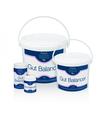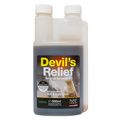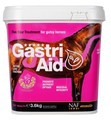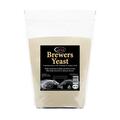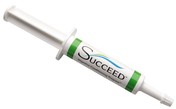Where horses are grazed on sandy ground, problems often follow. This is because ingested sand accumulates in the gut - namely the large colon - and causes inflammation, painful impactions that may twist the gut, and other generalised symptoms of colic.
In mild cases, sand can irritate the gut and cause diarrhoea, while in more severe incidences, impactions may prevent defecation altogether and halt the passage of food through the stomach and intestines.
It is important to recognise the early signs of colic and take extra care where sandy soil exists in a paddock, especially with younger horses that are likely to be less fussy about what they eat.
If you suspect your horse is ingesting sand because of worrying symptoms, you can do a simple test involving removing some faeces (best to take from the middle of the pile to avoid collecting any mixed with sand from the ground) and dissolving in water.
Give it a mix and after a while you’ll notice the sand sink to the bottom, while the faeces floats around above. While this establishes its presence, it doesn’t necessarily show the extent of its presence, as some may still be suspended in the gut.
In general, any more than a teaspoon of sand collected at the bottom, and your horse could be ingesting a potentially dangerous amount over the course of a few days.
Speak to your vet as they may need to conduct further tests to establish if sand colic is causing your horse’s symptoms.
To avoid the problem, try to only feed hay and hard feed from buckets or mangers rather than from the ground. Also make sure you are feeding a high-fibre diet, as this is essential for gut mobility.
Feeding psyllium can help support normal bowel function and encourage the movement of sand through the digestive tract. [Speak to your vet before administering psyllium as it can cause dehydration and its effectiveness decreases over time].
There are several supplements on the market that support digestive health, including ones specifically formulated to bind to sand to better enable the gut to shift it. These include Sand Shifter by Equine Products UK and Equimins Sand-Ex.
In severe cases, laxatives may be given to help relieve a blockage or impaction but, again, this is something your vet would have to advise on.
If you have any advice on preventing sand colic, we’d love to hear from you! Please comment below and let us know your thoughts or experiences.
Written by: Hannah



